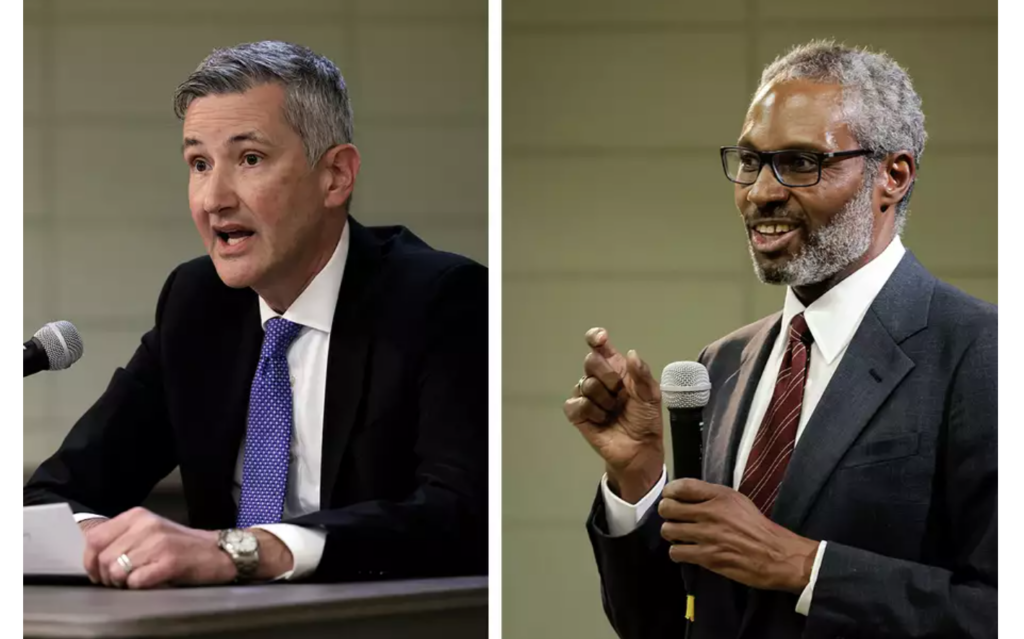
Endorsement: Michael Begert and Patrick Thompson for San Francisco Superior Court judge


By The Chronicle Editorial Board
January 27, 2024
Judges Michael Begert (left) and Patrick Thompson face challengers in the March 5 primary election. Both judges are well-qualified and deserve to keep their jobs.
Most California Superior Court judges are appointed by the governor, and only after a rigorous vetting process that can take months. The state Commission on Judicial Nominees Evaluation makes hundreds of calls to ascertain a candidate’s character and competency. Only after surviving these inquiries is a candidate’s application then forwarded to the governor, who makes the final decision on whether to grant a judgeship.
That’s the way it usually goes. But, every six years, judges face an election. Most of the time their names don’t appear on the ballot; it’s only when they’re challenged that a race ensues. Should a challenger defeat an incumbent judge, they ascend to the bench having bypassed the intense state vetting process.
For this reason, voters should be extremely cautious about removing a sitting judge.
This year, two appointed incumbent judges in San Francisco, Patrick Thompson and Michael Begert, face opponents in Assistant District Attorney Jean Myungjin Roland and corporate lawyer Albert “Chip” Zecher, respectively. The challengers have made tough-on-crime rhetoric the backbones of their campaigns.
Unlike other candidates for political office, the state’s judicial canons restrict what judges can say in their own defense even as political groups attack them in the press and advertisements, as has happened throughout this judicial campaign.
Despite these limitations, the editorial board interviewed each candidate to assess their qualifications and temperament.
Judge Begert oversees the Veteran’s Justice Court, which directs veterans charged with crimes to resources and treatment; the Drug Court, which connects people to substance use treatment; and the newly launched CARE Court, which can refer participants to court-ordered mental health care plans.
In all three courts, Begert said his approach is to listen to a wide range of experts before he determines the outcome of a case.
“Judges listen to what people have to say. That’s what we do,” he said. “We’re the blank slate; we receive evidence, and we decide based on the evidence.”
But judges do have some discretion, and Begert said he doesn’t give second chances when someone in his court fails to adhere to a plan. “I work very hard to make sure that if I tell you something, it will come true. So I’m going to say, ‘If you go to this program, and if you leave this program, I will kick you out,’ then when that happens, I kick you out.”
In the process of reporting this endorsement, we tracked down a person who appeared in Begert’s court as a defendant. The man described Begert as fair, even though the judge sent him to jail for 30 days.
Begert’s challenger, Zecher, is a former civil trial attorney who most recently worked in corporate law. He promised to provide more accountability and transparency in the court system, though, in our interview with him, he wasn’t able to clarify what exactly that meant. When asked why he was running for judge, he cited a call from District Attorney Brooke Jenkins for someone to run against incumbent judges. He also strongly hinted that he had concerns about Begert’s record.
“I looked at this judge’s record, and I believe that the voters should now look at this judge’s record and decide whether or not this judge is holding the criminal defendants accountable.”
When asked for specifics, however, Zecher said judicial canons prevented him from saying more. When we asked how much power judges have to make San Francisco safer, Zecher similarly demurred.
“Judges have a lot of discretion,” he said. “I can’t elaborate.”
Judicial canons do restrict what candidates can say, but Zecher was the least transparent of any of the candidates we spoke with. Mary-Beth Moylan, a lawyer and the associate dean of the University of the Pacific, reviewed our questions and Zecher’s responses and said she believes the candidate could have answered most of our inquiries.
Political supporters of Zecher, who are not bound by canons, have been similarly vague in their critiques of Begert. And our inquiries could find no glaring examples of dubious judgment on Begert’s part. In fact, they revealed the opposite — Begert is widely considered a highly competent and thoughtful legal mind, as evidenced by the fact that he was selected to helm Gov. Newsom’s signature CARE Court program.
You don’t throw a respected judge like Begert off the bench over innuendo.
Judge Thompson, meanwhile, was just appointed in March 2022, and since January 2023 has overseen preliminary hearings to determine if there is enough evidence to send a case to trial. He hears up to 30 of these cases per day, but told the editorial board, that despite the workload, he is committed to ensuring each defendant understands the legal scenario they’re faced with.
“It’s important for us to demystify the process and not have an inside baseball discussion,” he said.
Thompson enjoyed a broad and multifaceted career before being appointed to the bench, practicing civil law for a variety of respected firms and sitting on the boards of a theater, hospital, cathedral, civil rights law nonprofit and a housing program. Having been recently appointed by Gov. Newsom, he’s also been recently vetted and has received no disciplinary actions as a judge.
A slew of anonymous posters last September accused Thompson of unsafely releasing fentanyl dealers, citing specific cases. Going through the list of his accused misdeeds, Thompson explained that it was the district attorney who agreed to a diversion in one of the cases cited by the poster. In another case, he released the defendant because the Drug Enforcement Agency was not ready to proceed, and he was forced to by law. When the defendant failed to show up to a subsequent hearing, Thompson issued a bench warrant for his arrest.
Thompson’s opponent is a long-time deputy district attorney, Jean Myungjin Roland, who oversees felony trials in the San Francisco District Attorney’s office. A lifelong San Franciscan, she cares deeply about administering justice and appears to be a fine prosecutor. Claims that she withheld information about her husband’s drug use from the district attorney do not overly concern us, nor did they play a meaningful role in our deliberations.
Instead, the limited scope of her vision did. Judges cannot choose their assignments. Despite the tough-on-crime rhetoric of both Roland and Zecher, there is just as much likelihood they could end up in family or traffic court as they would in a criminal court.
We need vetted judges in San Francisco to manage our courts fairly and without politics. Begert and Thompson are qualified to do exactly that. They have earned our endorsement.
Roland and Zecher, meanwhile, could still become judges if they lose the election. There are two open seats on the San Francisco Superior Court awaiting candidates to go through the vetting process. As of this writing, neither has applied.